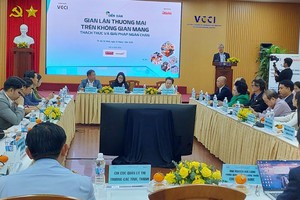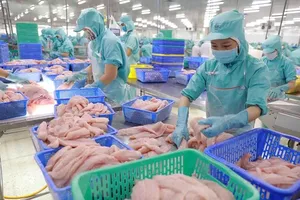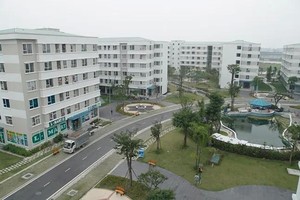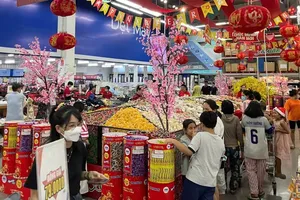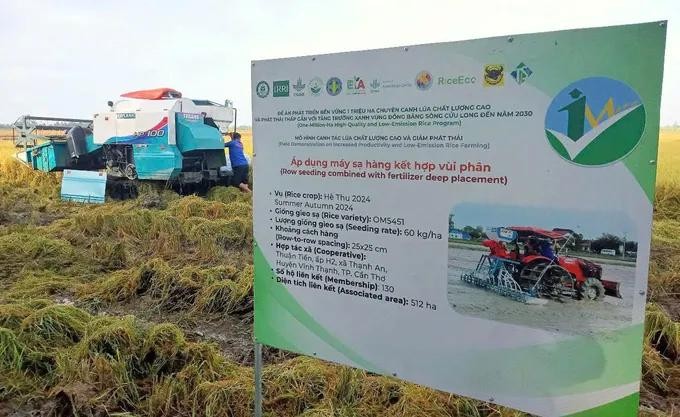
This afternoon in Can Tho City, the Ministry of Agriculture and Environment, in coordination with the Can Tho City People’s Committee and the International Rice Research Institute (IRRI), held a conference titled “Implementation of the MRV Process and the High-Quality, Low-Emission Rice Production Procedure in the Mekong Delta”.
At the conference, representatives from the Department of Crop Production and Plant Protection introduced the high-quality, low-emission rice production procedure for the Mekong Delta. The Institute for Agricultural Environment presented the Measurement, Reporting, and Verification (MRV) process for high-quality, low-emission rice cultivation. These two procedures form part of the project “Sustainable Development of One Million Hectares of High-Quality, Low-Emission Specialized Rice Linked to Green Growth in the Mekong Delta by 2030.”
The high-quality and low-emission rice production procedure provides integrated guidance from seed selection, land preparation, sowing, fertilization, water management, and pest control to harvesting, storage, and consumption helping reduce emissions, lower production costs, and improve yield and grain quality. The MRV process is designed to establish a mechanism for measuring, reporting, and verifying greenhouse gas reductions in rice cultivation, laying the groundwork for certification and carbon credit verification in agriculture.
Deputy Minister Tran Thanh Nam emphasized that the MRV process was developed through close collaboration among research institutes, universities, international experts, and local authorities to pilot and collect real-world data. This marks the first time Vietnam has announced an MRV process specifically for the rice sector.
The release of the MRV process also sends a message to the international community that Vietnam is taking concrete steps toward fulfilling its COP26 commitments, with measurement and verification processes developed according to international norms and grounded in field data. Finalizing both the sustainable production procedure and the MRV process will create the legal foundation for large-scale implementation in localities in the near future.
According to the Ministry of Agriculture and Environment, applying these two procedures is not only a technical requirement but also the starting point for transforming Vietnam’s rice sector from traditional production to green, smart, circular, and low-emission practices. The ministry urges localities, businesses, cooperatives, and farmers to work in coordination to establish these procedures as new standards for rice production in the Mekong Delta.
The conference agreed on a roadmap to pilot implementation starting in the 2025–2026 winter-spring crop, with full regional expansion beginning in 2027, alongside the development of tools to monitor and evaluate emission reductions and economic performance for farmers.
The ministry also requested the Department of Crop Production and Plant Protection to provide guidance, training, and support to localities beginning with the 2025–2026 winter-spring crop. Mekong Delta provinces are tasked with reviewing and selecting suitable production zones and integrating the procedures into other projects, plantation codes, traceability systems, and sustainability certifications.
The event was attended by Deputy Minister Tran Thanh Nam, representatives of provincial people’s committees in the Mekong Delta, international organizations, industry associations, businesses, cooperatives, and leading farmers from across the region.
















